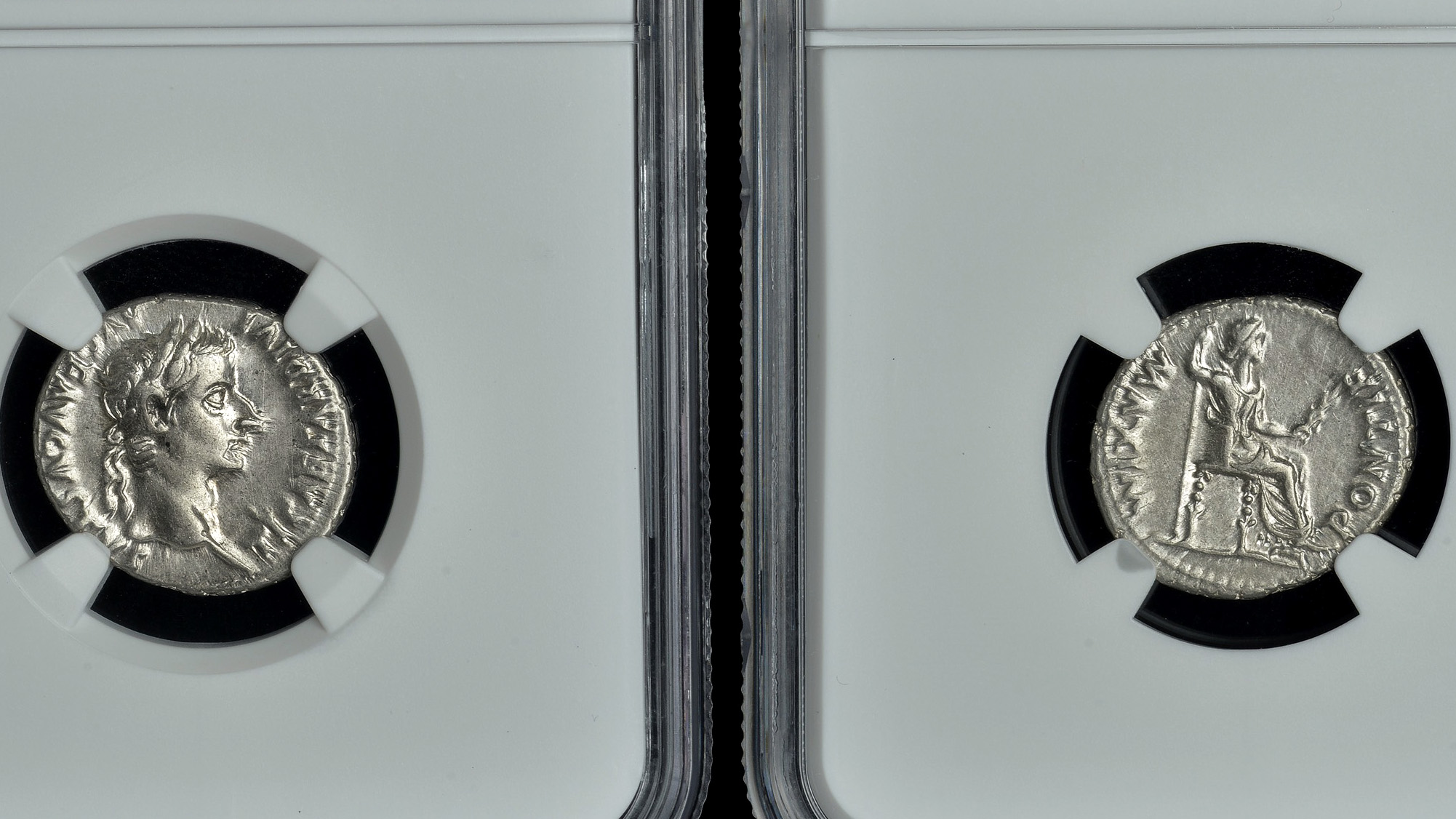Denarius of Tiberius
The Denarius of the Emperor Tiberius, commonly referred to as the “Tribute Penny,” was referenced by Jesus Christ in the Bible. As written in Mark 12:17, Jesus referenced the denarius when asked about paying taxes to the Romans. He held up the coin and said: “render unto Caesar the things that are Caesar’s and to God the things that are God’s.”

Reign of Tiberius
Tiberius is most well-known for ruling over the Roman Empire when Jesus was crucified. Tiberius rose to throne upon the death of his step-father, Emperor Augustus.
Tiberius was one of the most-distinguished Roman generals. During his reign, he conquered Pannonia, Dalmatia, Raetia, and (temporarily) parts of Germania. However, Tiberius did not really want to be a ruler. He is described as reclusive and sullen, preferring to delegate his duties to Praetorian prefects Lucius Aelius Sejanus and Quintus Naevius Sutorius Macro.
Tiberius appointed Pontius Pilate prefect of the Roman provinces of Judaea, Samaria and Idumæa. Pilate presided at the trial of Jesus and ultimately ordered his crucifixion.
Tribute Penny
The Denarius of Tiberius is one of the few historical artifacts from time of Jesus Christ. Of course, the term “penny” was not used during the time of Tiberius. Rather, it is the name given to the coin in the 1611 King James translation of the Bible. It is also unclear whether Jesus was actually holding a Denarius of Tiberius or one of many other coins that circulated in the region during that time.
The denarius was first struck around 211 BCE and was Rome’s first circulating silver coin. During the time of Tiberius, the coin represented one day’s wage for a soldier or laborer. While many Roman emperors regularly changed coin designs during their reigns, using them to tout their achievements or commemorate events, Tiberius kept the same design for nearly the duration of his 23-year reign.
The reverse features the inscription TI CAESAR DIVI AVG F AVGVSTVS around the laureate crowned head of Tiberius. The reverse depicts Livia, mother of Tiberius and wife of Augustus, dressed as Pax. She is holding a scepter and an olive branch, the symbol of peace. She is seated on a chair with ornate legs, her feet on a footstool. The image is surrounded by the inscription PONTIF MAXIM.
